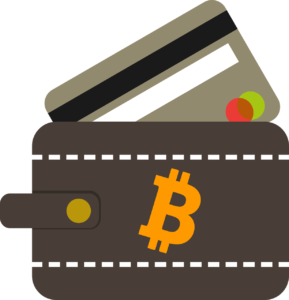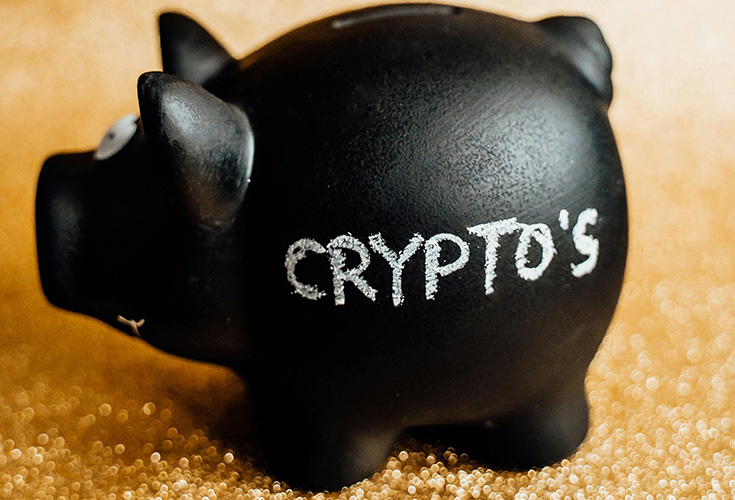Is Bitcoin Safe to Use?

Bitcoin has been gaining popularity in the past few years, and many people are using it to conduct transactions or make purchases from around the world. However, Bitcoin has had its fair share of problems over the years, which begs the question—is Bitcoin safe to use? If you’re thinking about using Bitcoin to make purchases online, here are four things to consider before you do so.
What is Bitcoin?
Bitcoin is a decentralized virtual currency that may be purchased, sold, and exchanged without the use of a middleman like a bank. An electronic payment system based on cryptographic evidence rather than faith was initially proposed by Satoshi Nakamoto, the person who created Bitcoin.
It is impossible to reverse or forge a Bitcoin transaction since every single one of them is recorded on a public ledger that is available to everyone. That’s intentional: Bitcoins are fundamentally decentralized since neither the government nor any issuing body is responsible for backing them, and the system’s inherent proof of work is the only thing that can ensure their worth.
Since its first distribution to the public in 2009, the value of Bitcoin has considerably surged. Despite formerly selling for less than $150 per coin, 1 BTC is now worth over $30,200 as of June 8.
Many anticipate that its price will only increase over time because there are only 21 million coins available. It is especially true as more significant institutional investors start to utilize it as a form of digital gold to protect against inflation and market volatility. There are currently more than 19 million coins in use.
What Makes Bitcoin Valuable?

Bitcoin has a finite supply of 21 million coins. Because of this, bitcoin cannot be devalued by governments or banks, and it makes bitcoin potentially valuable as a store of value.
The token also has the potential for growth because it is not just an investment but a technology that could help revolutionize how we send money over the internet and buy things online. It’s like your traditional currencies but better, and it’s decentralized and publically traded. All you need is some form of identification (email address) to open a wallet and start sending and receiving bitcoin.
Recommend purchasing at least one Bitcoin to use as a long-term investment and buying it through any reliable crypto exchange. If you’re new to using Bitcoin, here are some basic guidelines:
1.) Be aware that all wallets have a private key associated with them, which only the owner should know
2.) Wallets should be backed up regularly
3.) Don’t share your wallet’s password with anyone
4.) Remember passwords/phrases/private keys and don’t lose them
5.) Avoid phishing scams
Are Bitcoin Transactions Private?

Bitcoin transactions are not private, and every transaction is stored in a public ledger called the Blockchain. The Blockchain contains a complete history of all Bitcoin transactions, from the first ever transaction back to 2009 when it was created by Satoshi Nakamoto.
There is no way to find out who sent or received any particular bitcoin, but anyone can see how many bitcoins you have and where they are sent and received from. This information might be enough for someone to start piecing together your identity if they know what they’re looking for.
It would also be possible for someone with access to your computer (such as law enforcement) to go through your Internet browsing history, browser tabs, and computer files (e.g., Word documents) that contain financial details, such as usernames, passwords, social security numbers, bank account numbers etcetera.
They could do this because we live in an age of digital trails, which can lead people straight to your personal data. These digital trails take the form of cookies, web history, email messages, and downloaded emails/attachments; it’s impossible to browse the internet without leaving traces behind on servers somewhere.
However many precautions you take, there will always be some degree of risk so long as you use electronic means for transacting business online. A potential hacker could always target you using phishing scams. All it takes is one small lapse on your part, such as downloading a sketchy file or opening a shady link in an email, and that’s all she wrote for you – meaning hackers will get their hands on your information.
Can Bitcoin Be Regulated?

Bitcoin is not regulated by any government, and it’s a cryptocurrency that exists only electronically and is stored on your computer or in the cloud. But as it gains popularity, law enforcement agencies are trying to figure out how much control they should have over the currency. So far, regulators haven’t been able to find a way to regulate Bitcoin without hampering its use.
Bitcoin transactions are verified by servers called miners and recorded in a public blockchain ledger. This process of verification makes it more difficult for individuals or organizations who want to tamper with blockchains because their work would be instantly rejected by other miners.
The most common way people use it is by converting their local currency into bitcoin and then sending them electronically as payment for goods or services from someone who accepts bitcoins as payment. Bitcoins can also be bought and sold on exchanges, but they’re not insured or regulated. As such, buyers need to beware of it.
What Happens When I lose My Bitcoin Wallet?

If your bitcoin wallet gets lost or stolen, you can’t get it back, and it is because bitcoin does not exist in any physical form and thus cannot be recovered. Your bitcoin address would be recorded on a blockchain which is a type of public ledger that records all transactions made with bitcoin, but there is no way for anyone else to know to who that address belongs.
If you lose your wallet, the bitcoins stored in it are gone forever, and nobody will be able to get them back for you. So it’s essential to take care of your bitcoin wallet by storing it safely, preferably offline.
There are many ways to store bitcoin securely, each with its own benefits and disadvantages: Some popular options include paper wallets (which can be generated online), hardware wallets (which store the private keys on an external hard drive), and even brain wallets (a memorized list of words which can be converted into a private key). It’s also worth mentioning that most exchanges have built-in security measures, so as long as you keep your information safe, you should be fine!
What Are the Risks of Using Bitcoin?

The first and most obvious risk is that bitcoins are not insured by anyone, and if the bitcoin market were to crash, you could lose your entire investment. The second risk is that because bitcoin transactions are anonymous, it’s more difficult for law enforcement to track down who is doing criminal activities with their bitcoins (e.g., purchasing illegal goods on the Dark Web).
Thirdly, bitcoin transactions cannot be reversed once they have been confirmed on the Blockchain, so if you accidentally send your coins to the wrong address, there’s no way of getting them back.
Fourthly, while bitcoin exchanges have security measures in place against hacking attacks and theft of bitcoins from individual accounts, these measures might not be enough when dealing with large amounts of coins. Fifthly, many governments worldwide don’t recognize bitcoin as a currency or as a legal tender and are thus able to impose taxes and other rules about how it can be used.








